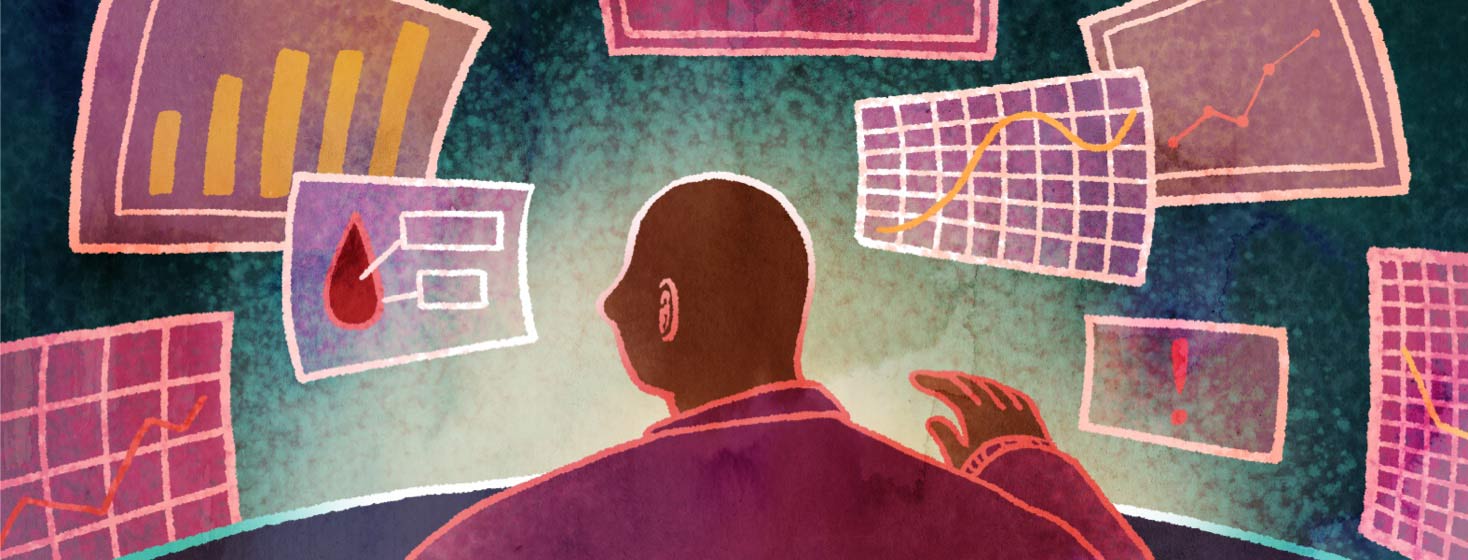Molecular HIV Surveillance
Public health officials are using genetic data collected from people living with HIV in a way that has advocates concerned.1,2
What is molecular HIV surveillance?
Molecular HIV surveillance is a new use of health data collected from people living with HIV. When people living with HIV visit a hospital or clinic for treatment, a doctor carries out genetic testing. The test creates a genetic sequence of the virus. The doctors use this sequence to discover 3 things:1
- The virus’ subtype
- Drug-resistant gene mutations
- How viral sequences are related (a process called phylogenetic analysis)
For decades, health professionals have used some of this information to figure out whether specific HIV therapies will be effective. The goal is to make sure the treatment you take works.1,2
More recently, health officials have started using genetic data in a different way. This is called molecular surveillance. Molecular surveillance is a type of monitoring. It can quickly detect groups of people living with similar strains of HIV.1,2
How is molecular surveillance of HIV used?
When health officials see a growing cluster of HIV transmissions, they may conclude that HIV is swiftly spreading. They can then take action to connect people to testing and treatment. Health experts have also used molecular surveillance to track outbreaks of other diseases, like the flu and tuberculosis.1
Parts of the United States and Canada are using this type of monitoring more often. In 2014, a molecular surveillance system in British Columbia detected about 12 new HIV cases within 3 months. Health officials stepped in to make sure the people whose HIV was detected were connected to treatment. As a result, several people started HIV therapy.1
Over the next year, the same system identified 12 new cases. There were also fewer transmissions of drug-resistant HIV.1
Although molecular surveillance can spot clusters of HIV strains, the data is not advanced enough to show that one person transmitted HIV to someone else.2
Why are people concerned about molecular HIV surveillance?
In recent years, the Centers for Disease Control and Prevention (CDC) has expanded the use of molecular detection technology. The CDC tied funding to states’ collection and sharing of molecular surveillance data. Some pushed back on the program. So the CDC allowed states to open a dialogue to address community concerns.2
People living with HIV, activists, and others are uneasy about a lack of consent in the use of private health data. Health departments inform people living with HIV that genetic testing is used for care, not ongoing monitoring. Some argue that using this data without consent is unethical. They also say that it leads to mistrust in the medical community.1,2
Many are also concerned about law enforcement use of surveillance data. Around 3-quarters of US states and territories have laws that criminalize HIV exposure. Authorities have charged more than 1,000 people under these laws since 1989.1,2
Lawyers understand it is impossible to use molecular surveillance to determine who transmitted HIV to whom. But they are still using it to build criminal cases against people living with HIV. Lawyers in Canada used a genetic database to convict a man of not disclosing his HIV. The judge in the case agreed it was helpful circumstantial evidence.1
There is also worry that authorities will target marginalized groups. This includes:1
- People without access to healthcare
- People living in poverty
- Sex workers and their clients
- Undocumented people
- People who buy and sell drugs

Join the conversation